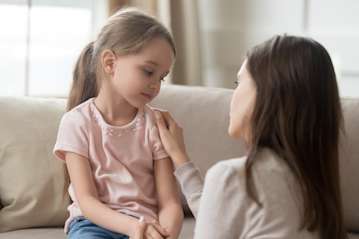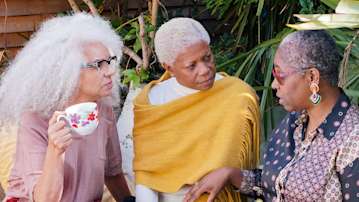
Grief after losing your partner
When you fall in love with someone, you plan your future together. And if you get married, you promise to love them ‘until death do us part’. But when that happens, it can feel devastating – whether you’ve been together for months, years or decades.
Losing a loved one is one of the most painful and personal experiences we’ll ever go through, but there are some common reactions to losing a partner that may be helpful to understand.
What you might experience
Bereavement brings with it a whole range of emotional and physical changes, but not everyone will experience them. However, some common emotions after losing a partner could be:
- Anger – at your partner for ‘leaving’ or at the world for continuing
- Loneliness – you can feel emotionally and physically lonely
- Feeling numb – especially if their death was sudden or you’re overwhelmed with grief
- Guilt – this could be because you’re still here (which is common in older couples) or if/when you start to move on
Shock is another normal reaction. ‘Even though we’re prepared for grief to be painful,’ says Andy Langford, clinical director at Cruse Bereavement Support, ‘many people are still shocked at how much it hurts.’ You might also be shocked at the number of other losses you experience.
Andy says, ‘Apart from the loss of your partner, you may go through a loss of connection and social interaction, a loss of identity – both within yourself and within your social circle – and a loss of intimacy.’ You could lose contact with your partner’s side of the family or their friendship group, too.
You may also face some physical losses, including a loss of appetite, losing sleep or a loss of confidence – this can lead to anxiety, another physical symptom of grief. If you don’t go through any of these experiences, it doesn’t mean you’re not grieving – grief isn’t one-size-fits-all.

Practical issues after losing a partner
In addition to the emotional impact of losing a loved one, there may be practical problems. ‘These could be financial, such as the loss of another salary or the loss of childcare,’ says Andy. ‘And if your partner had caring responsibilities for older relatives, their loss leaves a different kind of hole in your lives.’
The age at which your partner died may have other effects. For example, if you were both young, you may not yet have made wills or discussed your funeral wishes with each other. You may be left with very young children to bring up, or now have to halt any plans to start a family.
Older couples may have defined roles within their relationship that make it tough to cope when one partner dies. If one partner dealt with all the bills for example, the other may struggle to manage after their death. Likewise, if one was more practical around the house, the other could get overwhelmed with tasks such as cooking or grocery shopping.
If you’re struggling with practical issues after losing a partner, there are people you can turn to. In addition to friends and family, specific support groups including Age UK or Widowed & Young can help.
Remembering and moving on
You may find the big ‘firsts’ after a partner’s death particularly painful, such as your wedding anniversary or their birthday. These may get easier over time, but it doesn’t mean you’ve forgotten them.
If you want to remember your loved one on these occasions, or at any other time, there are a number of ways you can do so:
- Create a photo or video montage – set it to your partner’s favourite song, or music that’s significant to you both
- Start a memory box – fill it with mementoes of your time together, such as seashells from a beach holiday or letters you’ve written each other
- Create a special place in your garden – plant a tree in their honour, keep some ashes in a garden urn, or put a memorial bench in a quiet spot
- Organise a meal with friends at their favourite restaurant – sharing stories about your partner is one of the best ways to keep their memory alive

One question you might ask yourself – or even get asked by other people – is ‘Am I ready to move on?’. But the idea of beginning a new relationship can be tied up with a number of conflicting emotions.
‘You may feel very guilty if you start to have feelings for someone else,’ Andy says. ‘It can be really hard to hold the person you love, but who died, in your heart and also find space for someone else. Some people are never able to do that.’
Remember that grief is an individual journey; some people may appear to move on much faster than you. But if you spent years planning and building a life together, it will take time to feel OK going from ‘we’ to ‘me’.
• If you’re finding it hard to manage your grief, talk to specialists such as Cruse Bereavement Support, The Good Grief Trust, AtaLoss.org and Sue Ryder.
• We also have a number of helpful guides on finding bereavement support.


